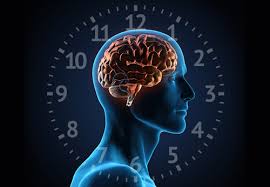Intermittent Fasting and Circadian Clocks
 We all have an internal clock, the circadian clock (actually many of them, your organs have them too). We are learning that ignoring that clock causes disease and obesity.
We all have an internal clock, the circadian clock (actually many of them, your organs have them too). We are learning that ignoring that clock causes disease and obesity.
In modern life, we have artificial light and stimulation (like eating) that throws off the circadian clock and further throw the organ’s clocks off sync.
One major way we can help sync our body clocks is to only eat during about a ten/ eleven hour window (mimicking daylight)–fasting 12/13 hours a day, optimally start fasting between 7-8pm. Studies show it matters when you fast as well as how long, much better to start early evening. Eating, or drinking any non-water beverage, restarts your clock in the morning. All your meals should fit into this time frame.
In studies, women who have had breast cancer relapse 40% less with just this one intervention than women who do not restrict their eating. Similar results for diabetes, fatty liver, and digestive disorders too (and lots of research is ongoing, it is safe to assume that all lifestyle-associated diseases could be related to our circadian clocks)
One other point–research shows that receptors in our eyes need over 1000 Lux of light to activate our circadian clocks, but most environments, including offices, do not have this much light. Go outside and get sunlight whenever you can to help you awaken, especially when you awake in morning, to get the chemical reactions in your body going–you need a fully functioning metabolism for health. (this is why we can feel tired and depressed on cloudy days) And avoid bright light the other 12 hours of the day, i.e. night, especially blue light, so you can get good, healing sleep.
There is a study ongoing that you can participate in while tracking your own progress.
http://mycircadianclock.org/